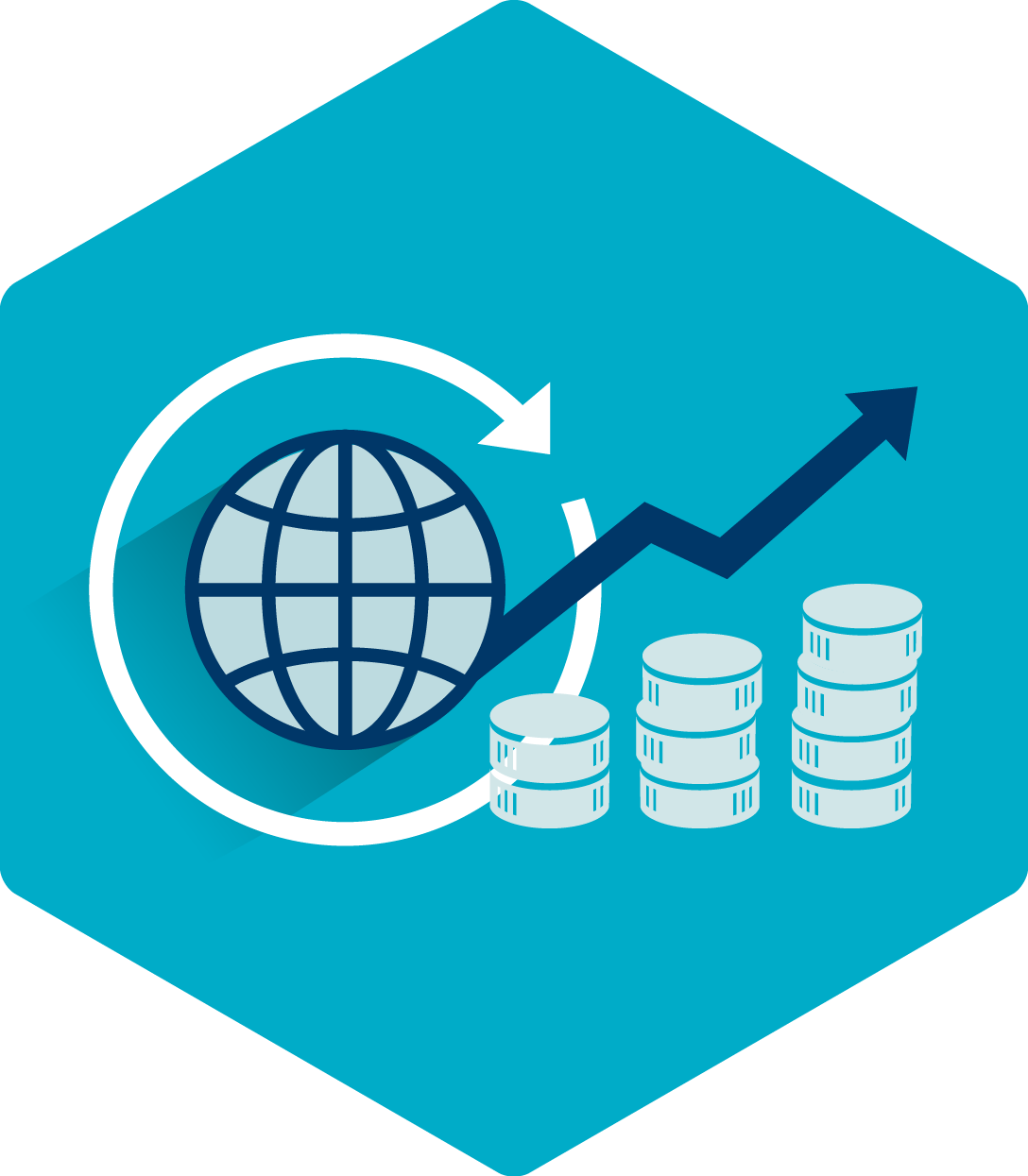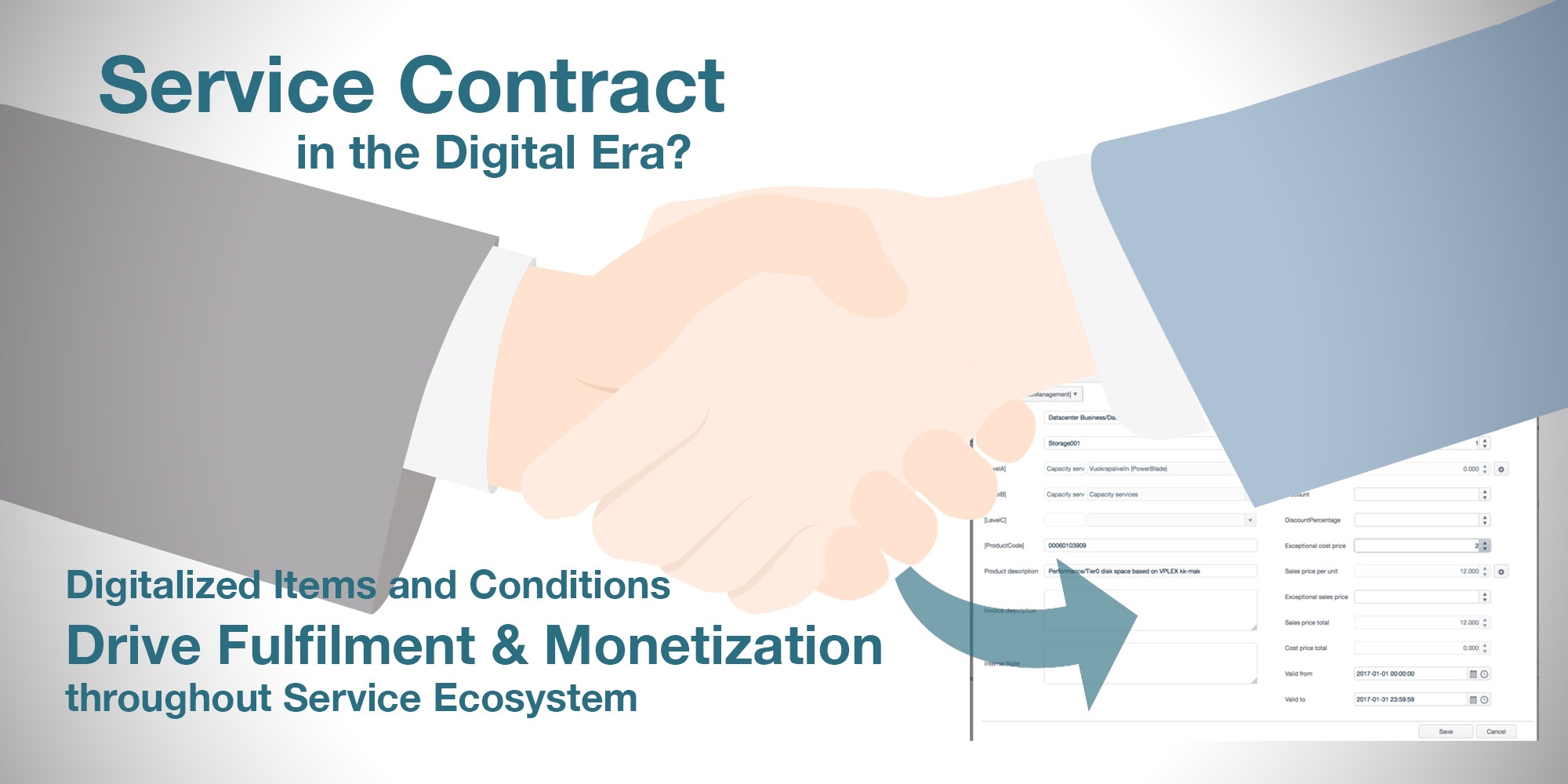Automated Flexibility To Scale Your Service Business
Scalability is a common factor to fast growing and profitable service businesses. It is not only about the ability to manage changes in volume. It...
2 min read
Kasper Ilmolahti : Aug 11, 2016 9:14:45 AM

As for today, it might seem that we have travelled far with the opportunities brought to us by digitalization. However, as mental it may sound, the utilization of these new possibilities provided to us has only scratched the surface.
In todays competetive and fast-paced world it is crucial for business leaders to realize that the current business models that so heavily lean on manners accustomed from a time before digitalization will grow old-fashioned. In order to achieve notable advantages in the market, some cruzial changes (and investments) will have to be made - the sooner the better.
This post discusses two subjects which will have serious weight in the digital economy of the future.

Digitalization will touch all aspects of business, transforming business models, supply chains - and how value is delivered.
Along with new technologies, digitalization is enabling organizations to transform their existing manually oriented, paper-based and legacy-software supported processes and structures into agile, collaborative, fast, efficient and flexible digital models.
Dynamic automation is not just technical automation of repetitive tasks but even more importantly adaptable automation with extensive context awareness. Dynamic automation is in the heart of digitalized flexibility mastering variable end-to-end service value streams with many service providers and many customers.
Dynamic automation and dynamic business modeling are connected. Dynamic business modeling is defined as the automation of enterprise business models based on the principle that the underlying business processes and business services need to be dynamically and openly definable as well as re-definable.
Localized, disconnected initiatives and silo based operations represent a challenge to competitiveness. Digitalized flexibility enables higher value add through extensive information availability and superior collaboration.
Read more of Digitalized Flexibility in action.
Orchestration is a core capability of software for digital services and digital ecosystems. Orchestration is the central intelligence that guides and drives digital end-to-end processes, much like a conductor in an orchestra.
Orchestration will allow adjustable automation and optimization of digital business processes - from simple workflows to complex integrated cross domain processes that span applications, geographies, and organizational boundaries.
Full orchestration not only enables accurate management of complete business processes but also protects service quality through failure management with ability to handle exceptions. Failure management identifies any service activity not completed and enables the rollback of entire sets of parallel and consecutive service transactions. Issues from incorrect information to failed interfaces can be corrected and the service process reinitiated.
Impeccable orchestration enables introducing adaptable business rules to drive agility. When business is supported by software based on orchestration and rule setting, complex tasks can be automated quickly and reliably. Orchestration accelerates processes. It brings efficiency and saves costs by avoiding manual tasks. It makes separate integration management solutions look outdated.
In majority of companies today, the utilization of the possibilities given to us is minimal. Are current business models competitive in the digital landscape? Is competition moving from product sales to continuous service providing model? What is the time to market with any new service business model with current organization, processes and software? Is process efficiency outdated? For example, how would it be like to save up to 90% in admininstrative expenses?
Intrested? Book a 30 minute meeting with us and let's find out together how You could bring your company on the cutting edge.

Scalability is a common factor to fast growing and profitable service businesses. It is not only about the ability to manage changes in volume. It...

1 min read
Contract Documents Have a New Meaning in the Digital Era If you were asked to visualize a contract, would you think of a pile of paper with hand...

Technopolis implemented Good Sign solution to its Service Ecosystem with Flexible Pricing, Customer Onboarding and Billing for the internationally...